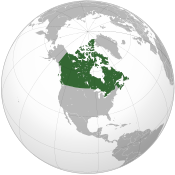British Columbia could get an earthquake, survey warns
Sunday, February 4, 2007
The Geological Survey of Canada is reporting that there is a higher probability that a major earthquake could strike the south coast of British Columbia within the next week. The alert comes after seismologists began monitoring a grouping of small tremors moving north along the cascadia subduction zone from nearby Washington State.
The phenomenon is called Epesodic Tremor and Slip (ETS), and it occurs on average every 14 months. ETS is causing the fault to begin moving in the opposite direction, in this case, Vancouver Island is actually shifting to the west, instead of to the east. This causes an added pressure on the strained fault line, and leads to the higher probability that a major earthquake could occur.
The Cascadia subduction zone, running from Vancouver Island to northern California is one of the most volatile geologic fault lines in the world. Unlike the well known San Andreas fault, which has the potential of generating earthquakes in the 7–8 range, the Cascadia fault line has the potential of releasing mega quakes in the magnitude 9 range - the size of the Sumatra quake that killed over 250,000 people, mostly from the tsunamis it triggered.
A quake of that magnitude could devastate a wide area, including Vancouver, British Columbia, Victoria, British Columbia, and Seattle, Washington, a denselypopulated area with close to 6 million residents.
The Canadian geological survey points out, however, that this is only a higher probability, and the chances of a cataclysmic earthquake in the next week is still relatively low.
Vancouverites often are unaware of the potential risk right below their feet.
"Living in Los Angeles, we always got those little reminders every time the ground rumbled. We are indeed living in Earthquake Country. Up here, though, we don't get them as often, so I think people really forget that we live in an earthquake zone. And because we don't get those little shocks from time to time, that stress is just building and building, and who knows, these little tremors we're getting now, might be the straw that breaks the camel's back."
Sources
[edit]- Judith Lavoie. "Scientists warn of higher quake risk" — Victoria Times Colonist, February 3, 2007
- Jane Armstrong. "B.C. put on alert for huge quake" — Globe and Mail, February 3, 2007
- "BC in 'Window' of Higher Earthquake Risk" — CBC News, February 2, 2007



